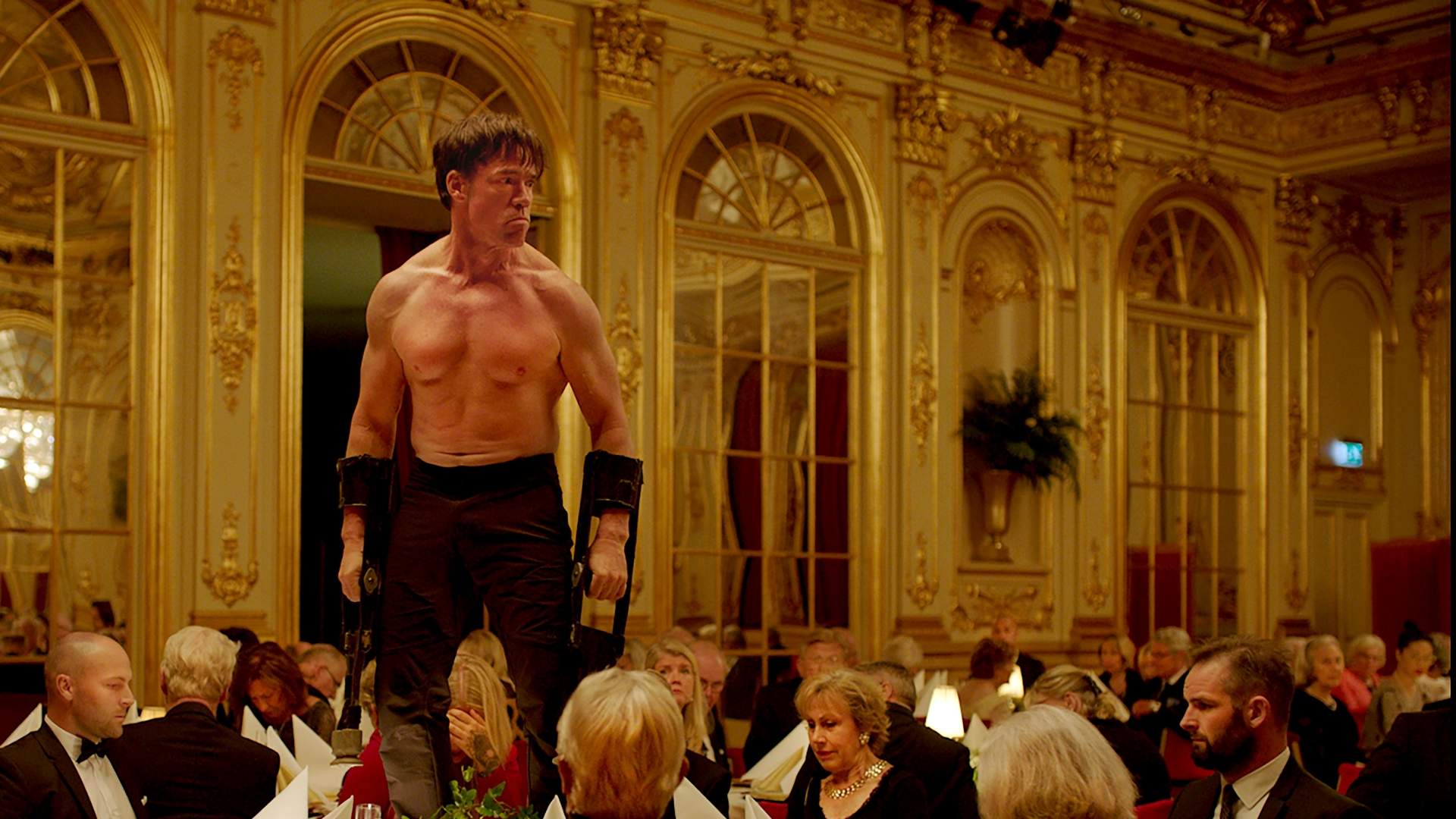The Square
A ambitious, over-the-top, sometimes odd satire that audiences will either love or despise.
Overview
When The Square won the top prize at last year's Cannes Film Festival, it was considered a controversial choice. That's an understandable reaction — an over-the-top satire about the art world that's filled with odd incidents and clocks in at nearly two-and-a-half hours long was never going to be everyone's idea of a masterpiece. But with Swedish filmmaker Ruben Östlund behind the camera, that's by design. Fittingly, he's made a piece of art that's not only about a divisive piece of art, but also proves incredibly divisive itself.
A complex look at the responsibilities that come with living within a society, as seen through the filter of creativity, contemporary art galleries and the reactions to both, The Square marches straight into the gap between public posturing and private truths. As such, it places the writer-director in very familiar thematic territory. Fans of Östlund's previous film, the fantastic Force Majeure, should instantly recognise his thematic hangups, as he skewers humanity's general tendency to say one thing but do another. Last time, he stepped inside the intimate confines of a dysfunctional marriage undone by a husband's selfish behaviour in a time of crisis. Here, the filmmaker similarly contemplates a wealth of complicated contradictions, this time in a world known for being polarising, prestigious and — sometimes — downright pretentious.
Indeed, if egotistical Stockholm gallery curator Christian (Claes Bang) was to offer his thoughts of the film he's in, he'd likely declare The Square a triumph — all while knowing that half of the audience strongly disagrees. Moreover, he'd do so with a particular kind of arrogance meant to pressure others to come around to his way of thinking. That's how he talks about his new installation, also called 'The Square', which is designed to cultivate empathy. Whether he's being interviewed by journalist Anne (Elisabeth Moss), discussing viral promotional strategies with his marketing team, or trying to wow the elite art crowd at gallery functions, Christian is certain that the four-by-four metre space (a "sanctuary of trust and caring" where participants "all share equal rights and obligations") is vitally essential and important.
How much of his behaviour is authentic? When you're expected to act a particular way, can you ever be your real self? Or are you putting on your own piece of theatre, whether you know it or not? And should your own personal role-play come at the expense of others? Again and again, Östlund puts his protagonist in situations that ponder the boundaries between art, life, truth and performance. Christian goes home with Anne, only to discover that she has a chimpanzee for a roommate. He hosts an elaborate party, which features an actor (Terry Notary) accosting the guests by acting like an ape. He's mugged on the street, but it's so well choreographed that it could be a show.
As Christian, Bang lives up to his surname. It's not a loud performance, but rather a commanding and compelling one, with the Danish actor turning in a portrayal that's as dense and disarming as the film itself. Considering he's in a movie that probes the difference between the organic and the staged, that's quite a significant feat. Furthermore, he also achieves something that Östlund sometimes struggles with: balance.
The Square might contend that art, like beauty, is in the eye of the beholder, but it sometimes overplays its hand in making that statement. The film is funny and insightful when you're on its wavelength, and positively grating when you're not. Its stunning set-pieces grab attention no matter which side you fall on at any given moment, but the movie can jump from astute and amusing to patience-testing with whiplash-inducing speed. And yet, in a picture this savage, smart and wildly ambitious, even the infuriating bits always feel like they're part of Östlund's playful game.





